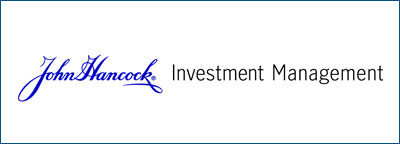Investment Disclosures
Calculation of Gross and Net Returns: Strategy performance shown is for the stated time period only; due to market volatility, each constituent account’s performance may be different. Unless otherwise stated, gross performance results are net of commissions and other direct expenses, but before management fees, custody charges, withholding taxes, and other indirect expenses. Net performance results are net of management fees, commissions, and other direct expenses, but before custody charges, withholding taxes, and other indirect expenses. All returns include the reinvestment of dividends. Differences in account size, timing of transactions and market conditions prevailing at the time of investment may lead to different results. Differences in the methodology used to calculate performance may also lead to different performance results than those shown. Past performance is no guarantee of future results.
The index benchmarks referenced herein are broad-based securities market indices and used for illustrative purposes only. They have been selected as they are well known and are easily recognizable. Broad-based securities indices are unmanaged and are not subject to fees and expenses typically associated with managed accounts or investment funds. Investments cannot be made directly into an index. The performance of the indices represents unmanaged, passive buy-and-hold strategies, investment characteristics and risk/return profiles that differ materially from managed accounts or investment funds, and an investment in a managed account or investment fund is not comparable to an investment in such indices or in the securities that comprise the indices. Past performance is no guarantee of future results. Investments of the managed account may be illiquid, making, at times, fair market valuation impossible or impracticable. As a result, valuation of the managed account may be volatile, reducing the utility of scomparison to any index whose underlying securities are priced according to market value, such as the indices. Managed accounts may incur losses both when major indices are rising and when they are falling.
The statistical data regarding the benchmark indices referenced herein has been obtained from sources believed to be reliable. The market index returns assume that on the day a portfolio investment is made, a hypothetical investment in a matching amount is made in the given index. For each date on which either a portion or all of the portfolio investment is sold, a hypothetical index multiple (factor) is calculated by comparing the change in index value between the two dates. The cost of the investment sold (or portion of cost sold) is multiplied by this factor, resulting in a hypothetical index value. The return is calculated using these dates of investment and hypothetical value(s) generated. Index returns assume reinvestment of dividends and do not reflect any fees or expenses associated with a managed account. These indices are being presented for comparison purposes only and should not be relied upon.
The MSCI Emerging Markets index captures large and mid cap representation across 24 Emerging Markets (“EM”) countries. EM countries include: Brazil, Chile, China, Colombia, Czech Republic, Egypt, Greece, Hungary, India, Indonesia, Korea, Kuwait, Malaysia, Mexico, Peru, Philippines, Poland, Russia, Qatar, South Africa, Taiwan, Thailand, Turkey and United Arab Emirates. With 1,387 constituents, the index covers approximately 85% of the free float-adjusted market capitalization in each country.
The MSCI ACWI index captures large and mid cap representation across 23 Developed Markets (“DM”) and 24 EM countries. DM countries include: Australia, Austria, Belgium, Canada, Denmark, Finland, France, Germany, Hong Kong, Ireland, Israel, Italy, Japan, Netherlands, New Zealand, Norway, Portugal, Singapore, Spain, Sweden, Switzerland, the UK and the US. With 2,900 constituents, the index covers approximately 85% of the global investable equity opportunity set.
The MSCI ACWI ex USA index captures mid and large cap representation across 22 of 23 DM countries (excluding the US) and 24 EM countries. With 2,274 constituents, the index covers approximately 85% of the global equity opportunity set outside of the US.
The Russell 2000 index is a small-cap stock market index of the bottom 2,000 stocks in the Russell 3000 Index, which seeks to be a broad measure of the US equities market.
The MSCI ACWI ex USA Small Cap index captures small cap representation across 22 of 23 Developed Markets (DM) countries (excluding the US) and 24 EM countries. With 4,386 constituents, the index covers approximately 14% of the global equity opportunity set outside the US.
Risks of investing in Axiom products and strategies:
Potential loss of investment – No guarantee or representation is made that the investment program used by Axiom-managed investment strategies (each a “Strategy”) will be successful. The Strategies represent speculative investment programs and involve a high degree of risk. An investment in any portfolio managed pursuant to a Strategy (a “Portfolio”) should be discretionary capital set aside strictly for speculative purposes. Investors must have the financial ability, sophistication/experience and willingness to bear the risks of an investment in a Portfolio. Portfolios are not suitable for all investors. An investor could lose a substantial portion of his/her/its invested capital. Axiom generally limits its clients to institutional and high net worth investors. Because of the nature of the trading activities, the results of any Portfolio’s operations may be volatile from month to month and from period to period. Accordingly, investors should understand that past performance is not indicative of future results.
Use of leverage – Strategies may utilize leverage and may also invest in forward contracts, options, swaps and over-the-counter derivative instruments, among others. Like other leveraged investments, trading in these securities may result in losses in excess of the amount invested.
Fees and expenses – Portfolios may be subject to substantial charges for management, advisory and brokerage fees. It may be necessary for those Portfolios that are subject to these charges to make substantial trading profits to avoid depletion or exhaustion of their assets. Please refer to the applicable Strategy’s disclosure documents for a more complete description of risks and a comprehensive description of each expense to be charged the Strategy.
Reliance on key persons – Axiom has total management authority over the Strategies and may be subject to various conflicts of interest. The death, disability or departure of the manager or advisor may have a material effect on a Strategy.
Counterparty and bankruptcy risk – Although Axiom will attempt to limit its transactions to counterparties which are established, well-capitalized and creditworthy, Portfolios are subject to the risk of the inability of counterparties to perform with respect to transactions, whether due to insolvency, bankruptcy or other causes, which could subject the Portfolio to substantial losses.
Volatile markets – Market prices are difficult to predict and are influenced by many factors, including: changes in interest rates, weather conditions, government intervention and changes in national and international political and economic events.
The above summary is not a complete list of the risks, tax considerations and other important disclosures relating to Axiom products or services. Prospective clients should read all disclosure documents provided by Axiom relating to its products or services before engaging Axiom’s advisory services.

